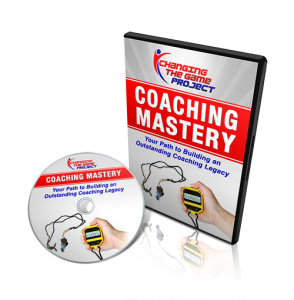By Dawn Redd-Kelly.
I used to call this a “stop and chat”, but apparently there’s an actual name for this management technique called Management By Walking Around, or MBWA.
What is it exactly?
- Stop and talk to players face to face.
- Get a sense how things are going.
- Listen to what is on player’s minds.
Why is it successful?
Years ago, I worked with a track coach who said it was his goal to talk to each athlete every day…even if only for a few moments. Connecting with our athletes is a win-win. We feel good about where our team’s mindset is and the players feel that we care.
If you do it correctly, you’ve been MBWAing all season, so the team won’t be startled when you stop and chat with them. This strategy will pay dividends when and if something big happens within the team that you need to get to the bottom of.
How to MBWA with your team
- Make it part of the routine. The team should know when they come into the gym that you’re probably going to be talking to them, it shouldn’t be weird or awkward…just part of being on the team.
- Just you, not the other coaches. If your whole coaching staff approaches one of your players, I’d imagine they’d start racking their brains, trying to figure out why you were coming toward her with a posse!
- Chat with everyone. Seems obvious, but be sure to talk to each person on the team. Super stud and practice player alike. That way you can’t be accused of being unfair. Well, you can, but it won’t be true.
- Ask for suggestions. This one is an easy one for a MBWA before a game, because you can always ask for suggestions for places to eat dinner. It’s super important for them (for some reason) and the team’s gotta eat.
- Follow up with answers. If you’re doing a MBWA and one of the athletes asked a question you don’t know the answer to, you’ve got to be sure to get back to him with the answer.
- Don’t criticize. There’s plenty of time for that! Keep it light…this is about relationship building!
If you want to read more about Management By Walking Around, check out this article. Investing our precious time into our players will reap benefits down the line.
 Are you tired of walking into practice and seeing lackluster effort from your players? Have you had it with trying to get your female athletes to care about the team as much as you do??
Are you tired of walking into practice and seeing lackluster effort from your players? Have you had it with trying to get your female athletes to care about the team as much as you do??
Click here to find out more about Coach Dawn’s eBook: Motivating Female Athletes
Comes with a FREE PowerPoint presentation called Guarantee Your Success: Using John Wooden’s Pyramid of Success To Increase Your Team’s Cohesion.


